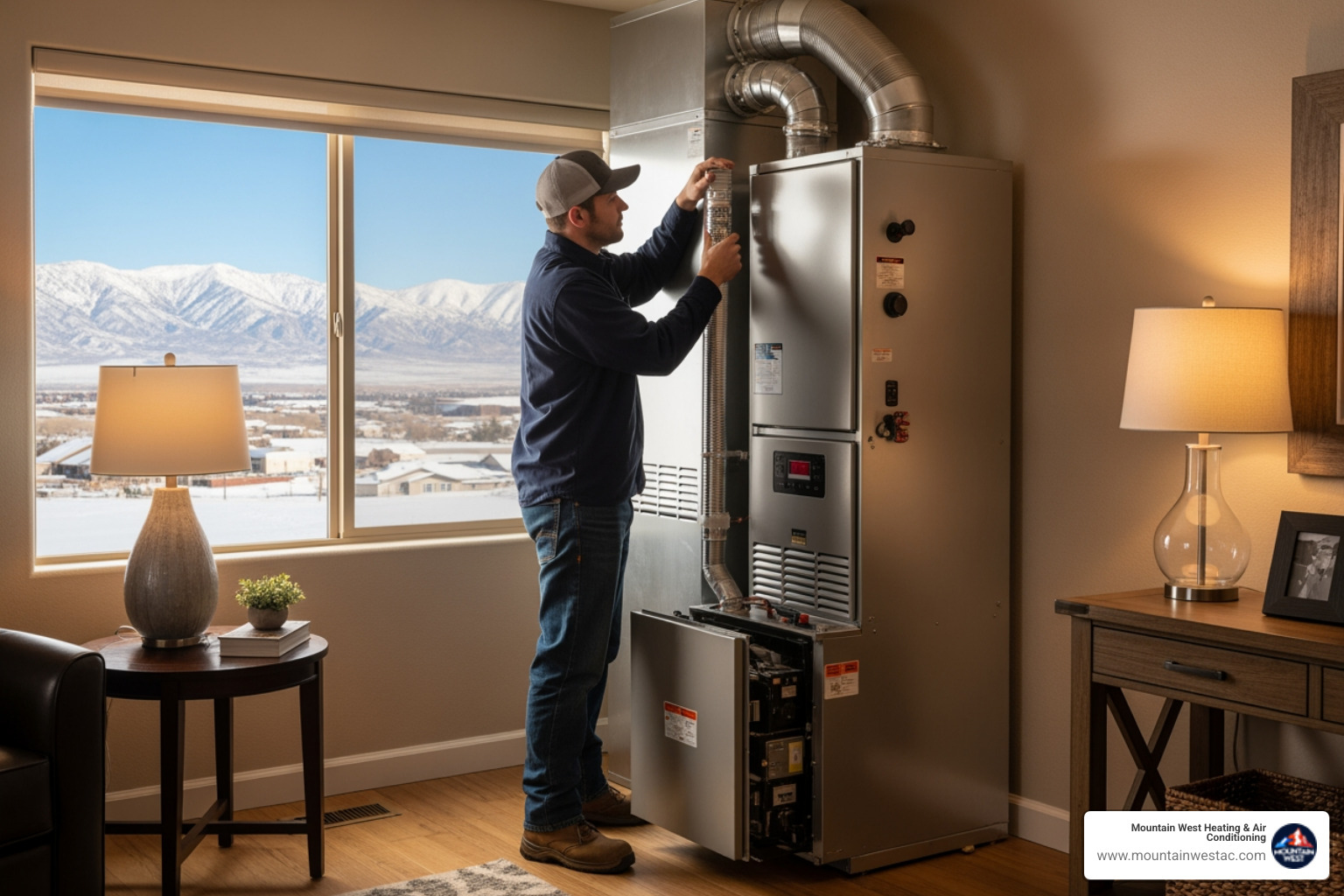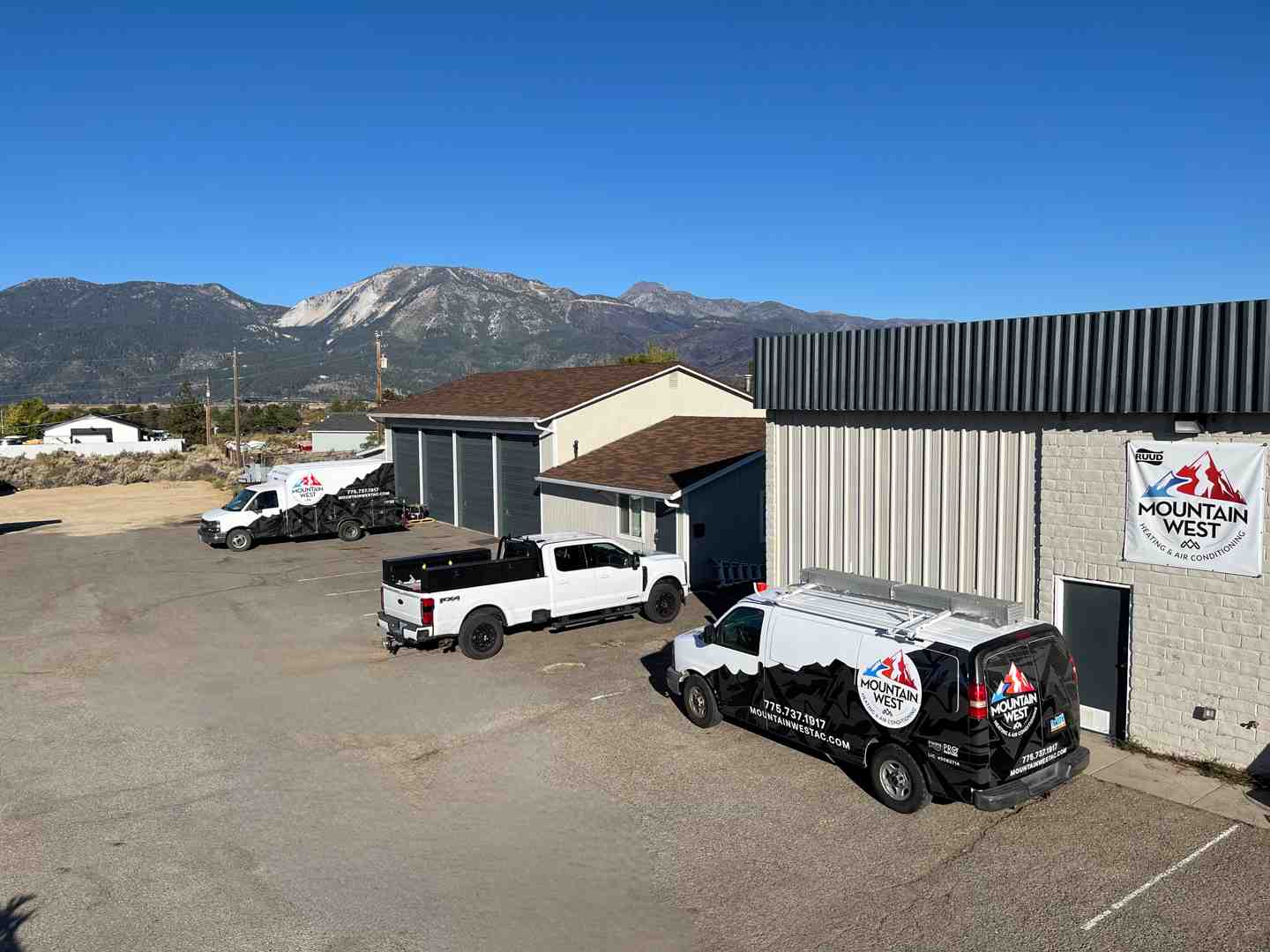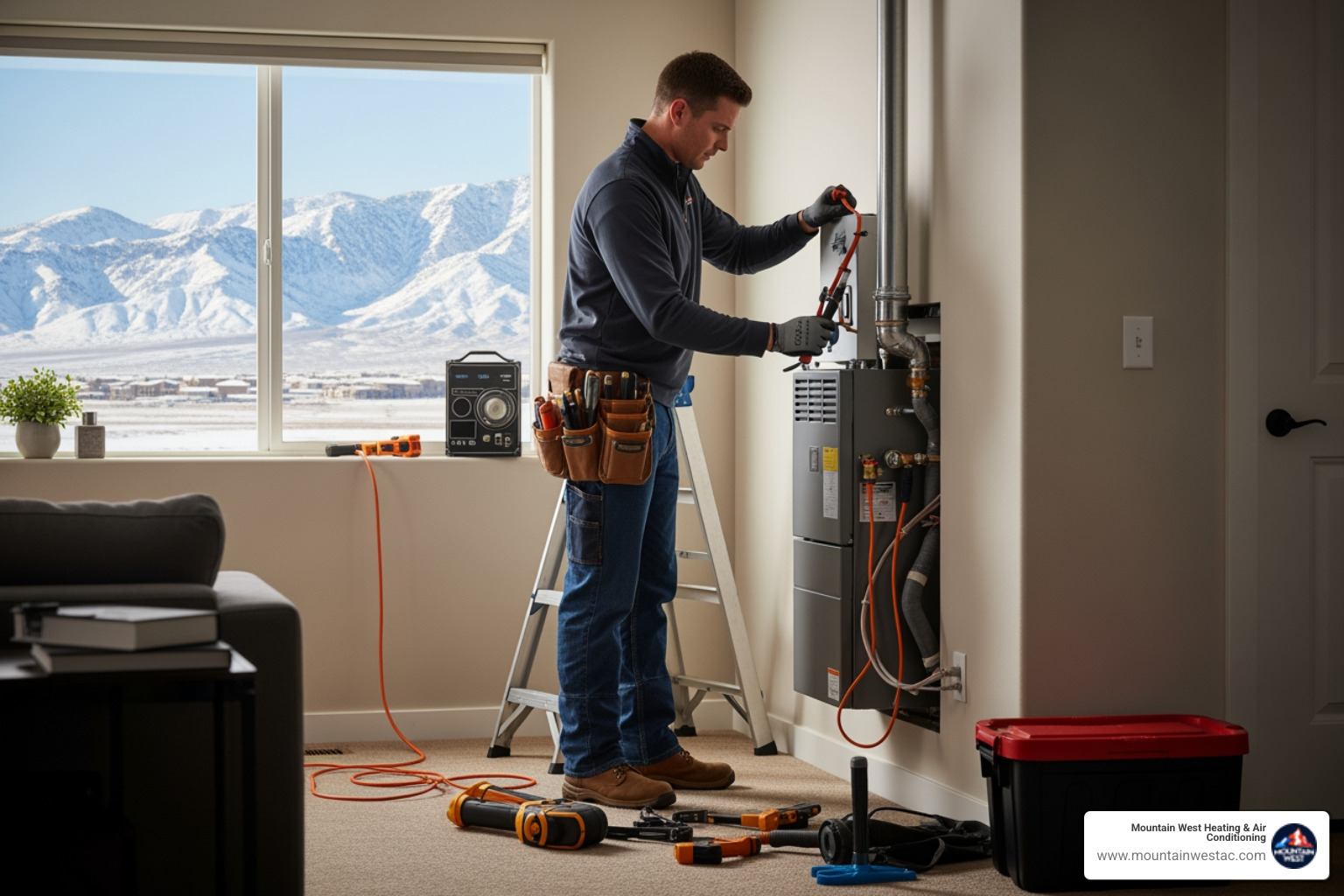As summer approaches, many of us will rely on our air conditioning units to keep cool. What you might not realize is that AC unit cleaning services can save you money. When your air conditioner is free of dirt, dust, and debris, it operates more efficiently, uses less energy, and has a longer lifespan.
Neglected AC units struggle to provide adequate airflow, forcing the system to work harder and consume more electricity. This strain not only raises your monthly bills but can lead to costly repairs and premature replacement.
The accumulated grime on components like filters and coils prevents proper heat transfer, directly impacting your comfort on hot days.
We understand that cleaning your AC unit might seem like a challenging task. While some maintenance can be done yourself, professional cleaning services ensure every component is properly cared for without risking damage to the system. Regular professional maintenance keeps your unit running at peak performance when you need it most.
In this article, we’ll explain how professional AC cleaning works, when to schedule it, and what signs to look for, so you can keep your system running smoothly all season long.
Here's what you need to know:
- Why clean AC units improve comfort, efficiency, and air quality
- What causes AC buildup and how it affects performance
- Professional AC cleaning: Who to hire and what to expect
- Protecting your data and privacy during AC maintenance
Let's dive in!
Why clean AC units improve comfort, efficiency, and air quality
A clean air conditioning system provides benefits beyond just cool air. Regular maintenance impacts your comfort, wallet, and well-being in several important ways.
Signs your AC unit needs cleaning
Your air conditioner often shows clear signs when it’s time for a professional cleaning. Ignoring these early indicators can lead to reduced efficiency, poor air quality, and unexpected breakdowns.
One of the most common signs is weak airflow from your vents. If certain rooms feel warmer than others or airflow seems inconsistent, dirt may be blocking the evaporator coil or blower fan. A noticeable increase in energy bills without a change in usage is another red flag, your system might be working harder due to restricted airflow or dirty components.
Unusual odors, especially musty or moldy smells when the AC is running, often indicate microbial growth inside the system. Visible dirt or debris on the return grille or around the indoor unit is another clue that dust is building up inside.
If your system cycles on and off more frequently than usual or struggles to reach the thermostat setting, it may be overdue for cleaning. These issues typically worsen over time if not addressed, leading to higher repair costs and reduced equipment life.
How AC cleaning improves energy efficiency and lowers bills
Dirty AC units work harder and consume more electricity. When dust and debris build up on your evaporator coil, the system struggles to transfer heat effectively, reducing its SEER (Seasonal Energy Efficiency Ratio) and EER (Energy Efficiency Ratio) ratings.
Regular HVAC maintenance, including professional AC cleaning, can cut energy consumption by 5–15%, according to the EPA. This decrease in usage translates to meaningful monthly savings, making yearly cleanings a cost-effective investment.
Consider this comparison:
Condition
Energy Usage
Monthly Cost Impact
Clean AC
Optimal
Saves $20-$40
Dirty AC
Increased
Costs extra $20-$40
Regular cleaning maintains the efficiency your system was designed to deliver, helping you save money while staying comfortable.
Improved indoor air quality
Your AC system filters the air your family breathes. When components are dirty, they can circulate dust, allergens, and even mold throughout your home.
A clean system traps and removes airborne particles instead of distributing them. This is especially important for people with allergies, asthma, or other respiratory conditions.
Regular maintenance prevents mold growth in damp areas of your A/C system. Mold spores can trigger allergic reactions and respiratory problems when circulated through your home.
We've seen dramatic improvements in air quality after proper cleaning. Many homeowners report reduced allergy symptoms and better sleep after having their systems professionally cleaned.
AC filter replacement: When and how to do it right
Replacing your AC filter is one of the simplest and most effective ways to maintain system efficiency and indoor air quality. A clean filter allows proper airflow, prevents strain on your system, and captures airborne particles like dust, pollen, and pet dander.
You replace your AC filter:
- Standard 1” filters: Replace every 30–60 days.
- High-efficiency filters (MERV 11–13): Replace every 60–90 days.
- Homes with pets, allergies, or heavy use: Replace every 20–45 days.
Always follow your HVAC manufacturer’s recommendations, and inspect the filter monthly for visible dirt or damage.
Types of filters and what they do:
- Fiberglass filters: Inexpensive, but offer minimal filtration—best for protecting equipment, not air quality.
- Pleated filters: Better airflow and particle capture; widely used in residential systems.
- HEPA and high-MERV filters: Capture microscopic allergens and pollutants; ideal for allergy-prone households, but may reduce airflow in systems not designed for them.
For replacements, always turn off your system before removing the old filter and note the direction of airflow arrows on the frame. Make sure to measure your current filter or check the manual to ensure a correct size and don’t force filters that don’t fit, this can cause air leaks around the frame.
Replacing your filter regularly not only supports system longevity but also improves your home’s comfort and air quality with minimal effort.
Extend your AC system’s lifespan with regular cleaning
An AC unit represents a significant investment in your home. Without regular cleaning, components wear out faster than their intended lifespan.
Dirt on your evaporator coil forces the compressor to run longer and work harder. This additional strain leads to more frequent breakdowns and earlier system failure.
Regular cleaning helps protect critical components from premature wear. A well-maintained system typically lasts 15-20 years, while neglected units often fail after just 8-10 years.
Professional maintenance also allows technicians to spot small issues before they become expensive problems. The cost of regular cleaning is far less than emergency repairs or early replacement of your entire system.
What causes AC buildup and how it affects performance
AC units naturally collect dirt and contaminants over time. These buildups affect both your health and your system's performance in several important ways.
Dirt and debris: How buildup harms AC performance
Outdoor AC units are constantly exposed to environmental elements. Leaves, grass clippings, pollen, and dust get pulled into the unit through the intake vents. Inside your home, dust and pet hair collect on filters and internal components.
When filters become clogged, they can't effectively trap particles. This allows dirt to bypass the filter and settle on the evaporator coil. Dirty coils can't transfer heat properly, forcing your system to work harder.
Regular coil cleaning is essential to prevent this buildup. We recommend using a gentle cleaning solution specifically designed for AC coils rather than harsh chemicals that might damage components.
For outdoor units, clearing debris from around the unit is the first step. A water hose can remove loose debris, while stubborn dirt may require careful use of a pressure washer by professionals.
Mold and allergens in AC systems: Risks and prevention
The dark, damp environment inside AC units creates perfect conditions for mold growth. Condensation that forms on coils provides moisture that mold spores need to thrive.
When your AC runs, it can distribute these mold spores and allergens throughout your home. This significantly impacts indoor air quality and can trigger allergic reactions, respiratory issues, and other health problems.
Mold often produces a musty smell that comes through your vents when the system runs. This odor is often the first sign of a contaminated system.
Regular maintenance helps prevent mold formation. Professional cleaning includes treating surfaces with antimicrobial solutions that inhibit mold growth and remove existing colonies.
Impact on system performance
Dirt accumulation forces your HVAC system to work harder to maintain desired temperatures. When airflow is restricted, the system runs longer cycles and uses more energy.
This increased strain leads to higher utility bills – sometimes 15-30% higher than with a clean system. Components like the compressor and fan motor experience excessive wear when working against restricted airflow.
Overheating becomes a serious risk as dirt insulates components that need to release heat. This can lead to premature system failure and costly repairs.
The lifespan of an AC unit can be reduced by years when maintenance is neglected. Regular professional cleaning helps maintain optimal performance, improves energy efficiency, and extends the life of your system.
Professional AC cleaning: Who to hire and what to expect
When your AC unit needs cleaning, professional help ensures the job is done right. Experts have the tools, knowledge, and experience to properly maintain your system for maximum efficiency and longevity.
How to choose a qualified HVAC technician for AC cleaning
Look for technicians with proper certifications like NATE (North American Technician Excellence) or certification from manufacturers. Experience matters - technicians who have worked on many systems will spot issues quickly.
Ask for recommendations from friends or check online reviews. A good HVAC company should have positive feedback and a strong reputation in your community.
Request multiple quotes to compare prices, but remember that the cheapest option isn't always the best. Quality service may cost more initially but saves money long-term by preventing major repairs.
Verify that the company carries proper insurance and offers warranties on their work. This protects you if something goes wrong during or after service.
What’s included in professional AC cleaning services
Professional HVAC services typically include comprehensive cleaning of both indoor and outdoor components. Technicians will clean the evaporator coil, which often collects mold and bacteria that can affect your air quality.
Condenser coil cleaning is essential for proper heat transfer. Professionals use specialized cleaning solutions that break down stubborn dirt without damaging delicate fins.
Drain line cleaning prevents clogs that could cause water damage or system shutdown. Technicians flush the line and may apply treatments to prevent future buildup.
Filter replacement or cleaning ensures proper airflow. Pros can recommend the right filter type for your specific needs and system.
Many companies offer annual maintenance plans that include regular cleanings, priority scheduling, and discounts on repairs. These plans help maintain efficiency year-round.
What to expect during a maintenance visit
A typical maintenance visit lasts 1-2 hours depending on your system's condition. The technician will first inspect your entire HVAC system to identify any issues.
For outdoor units, they'll shut off power, remove debris, straighten fins, clean coils, and check refrigerant levels. Indoor servicing includes inspecting and cleaning the evaporator coil, checking electrical connections, and ensuring proper airflow.
You'll receive a detailed report of work performed and any recommendations for repairs or upgrades. Good technicians explain their findings in plain language without pushing unnecessary services.
Ask questions during the visit - professionals should be happy to explain what they're doing and why it matters. We recommend being present during the service to understand your system better.
Schedule maintenance twice yearly - typically in spring before cooling season and fall before heating season - for optimal performance.
How often should you schedule professional AC cleaning?
Professional AC cleaning is recommended at least once per year, ideally in the spring before the cooling season begins. This ensures your system runs efficiently when you need it most and prevents performance issues during peak summer months. In regions with high dust, pollen, or wildfire activity, cleaning twice a year may be necessary to maintain air quality and protect sensitive components.
Households with pets, allergies, or high usage, such as running the system daily during summer, should also consider more frequent service. Over time, even with regular filter changes, dirt and microbial buildup accumulate on coils and in drain lines, reducing efficiency and circulating allergens.
While basic cleaning tasks like filter changes and outdoor debris removal can be done by homeowners, internal components like the evaporator coil and blower assembly require professional tools and training. Routine visits from a certified HVAC technician help prevent major issues, reduce energy costs, and extend the life of your AC system.
DIY vs. professional AC cleaning: What’s the difference?
While some air conditioner maintenance tasks can be handled by homeowners, there’s a clear line between safe DIY care and what should be left to professionals. Knowing the difference helps you protect your system without risking damage or voiding warranties.
DIY cleaning typically includes replacing or washing air filters, removing debris from around the outdoor unit, and gently rinsing the condenser fins with a hose. These steps are useful for keeping airflow unobstructed and reducing stress on the system.
However, deeper cleaning tasks, like accessing and sanitizing the evaporator coil, clearing clogged drain lines, or checking refrigerant levels, require specialized tools and training.
Improper handling can lead to refrigerant leaks, electrical issues, or damage to sensitive components. Professionals also inspect for early signs of wear, mold, or mechanical failure that homeowners are unlikely to notice.
Protecting your data and privacy during AC maintenance
When maintaining your AC system, it's important to consider not just the physical aspects but also how your personal information is handled during service visits and through smart device connections.
What personal data is collected during AC service visits
When technicians visit your home for AC maintenance, they may collect personal data like your name, address, and contact information. This information helps them authenticate users and provide follow-up service.
Be careful about what documents are visible during service calls. We recommend storing bills, financial statements, and other sensitive information before technicians arrive.
Ask service providers what specific information they record. Some companies track service history, parts used, and system performance to better serve you in the future.
Reputable HVAC companies use security measures to protect your data from unauthorized access. Don't hesitate to ask about their data protection policies before scheduling service.
Ensuring security and consent with providers
Always verify the credentials of AC service providers before allowing them into your home. Look for proper identification and check online reviews to prevent potential abuse of access.
Request clear information about how your data will be used. Companies should explain if they'll use your information for analytics, content measurement, or audience research.
Get written confirmation about what the service includes. This helps avoid unexpected charges and ensures the technician has your consent for all work performed.
If a service provider uses geolocation data to track technicians or schedule appointments, ask how this precise geolocation data is stored and protected.
Managing privacy settings on smart AC systems
Many modern AC units connect to smart home systems with their own privacy settings. Review the privacy dashboard of your smart thermostat or AC controller regularly.
Adjust cookie policy settings on manufacturer websites when registering products or scheduling service online. This limits how much of your search data companies can collect.
Check for options to opt out of marketing communications. Most reputable companies provide ways to manage privacy settings while still receiving important service notifications.
For WiFi-connected AC systems, secure your home network with strong passwords and consider using a guest network for IoT devices to protect your IP address and other connected devices.
Conclusion
Keeping your AC unit clean is one of the most effective ways to improve energy efficiency, protect indoor air quality, and extend the life of your HVAC system. From reducing monthly utility bills to preventing costly breakdowns, routine maintenance provides measurable benefits for comfort, health, and home value.
Whether you’re replacing filters, removing debris, or scheduling a deep cleaning from a licensed technician, taking action before peak cooling season ensures your system is ready when you need it most.
If you’re in Utah and need reliable AC unit cleaning services, the team at Mountain West is here to help, backed by experience, certifications, and a commitment to long-term performance.









